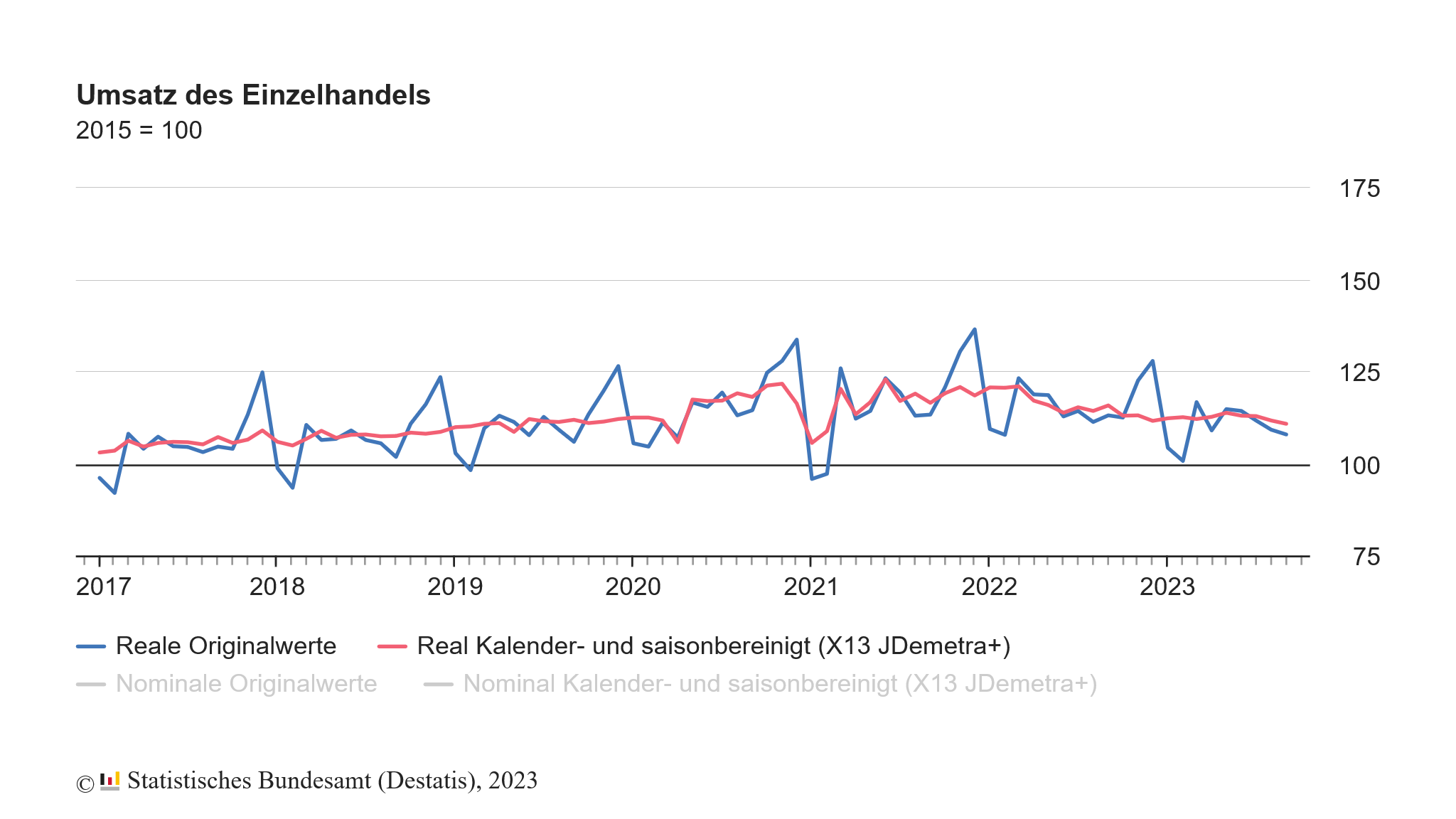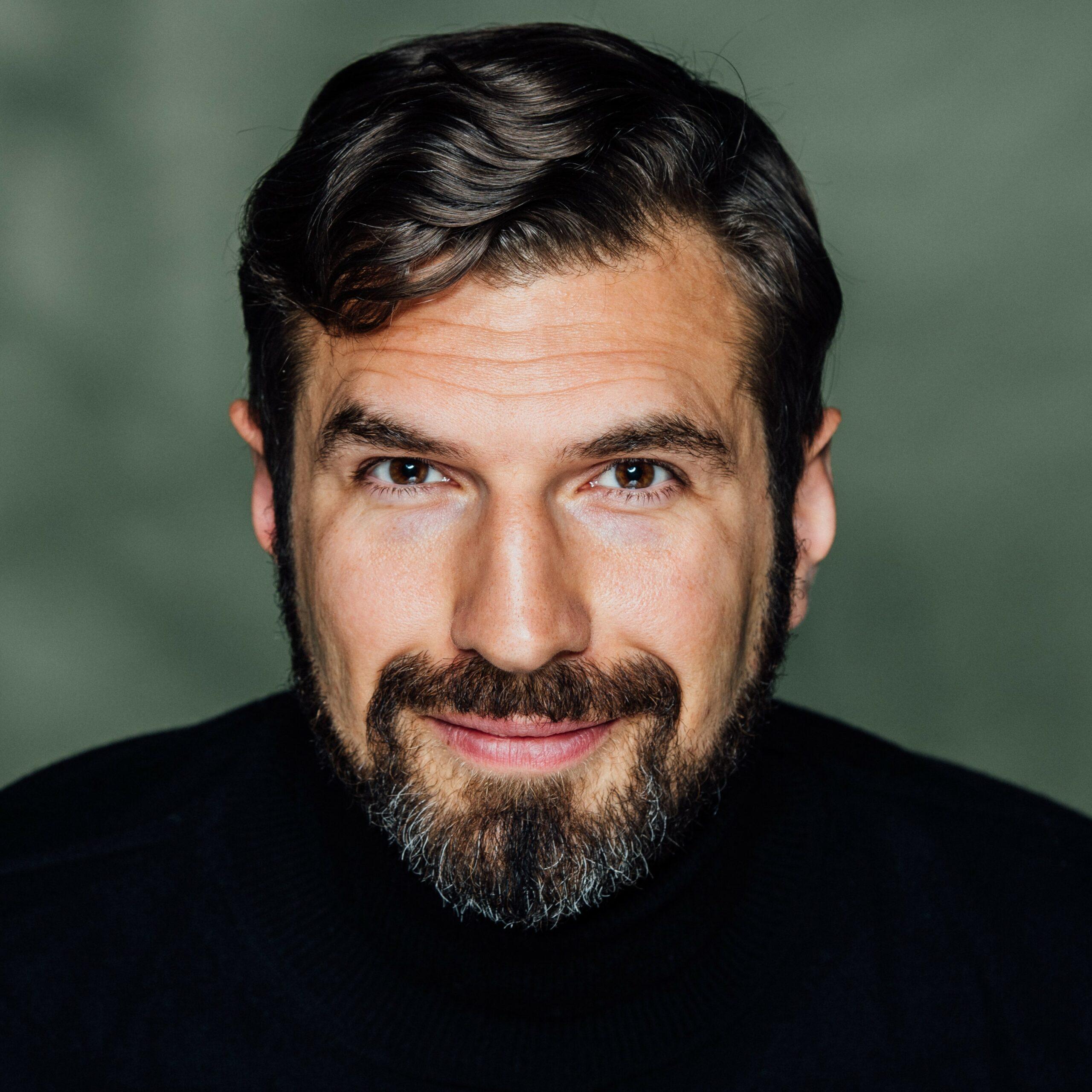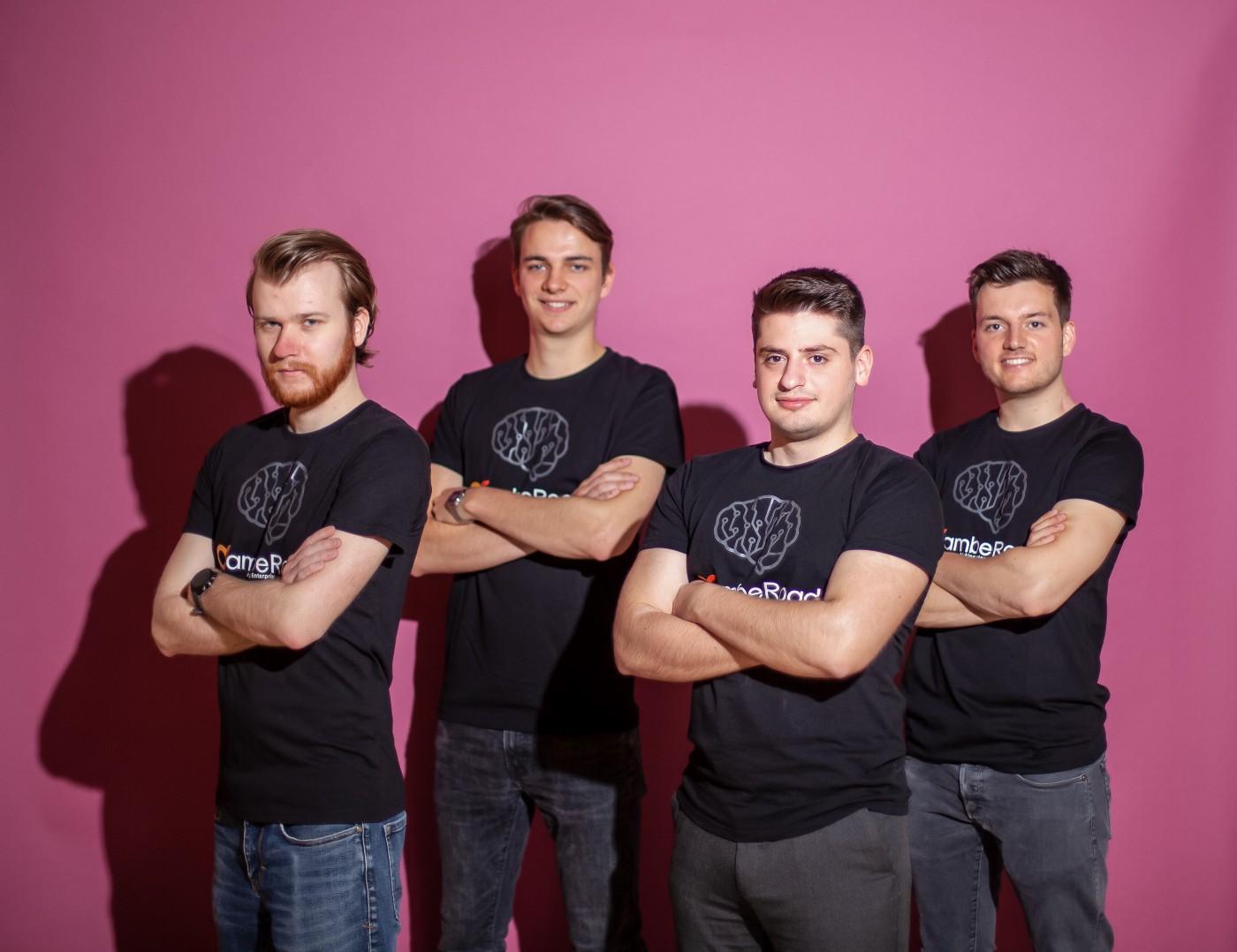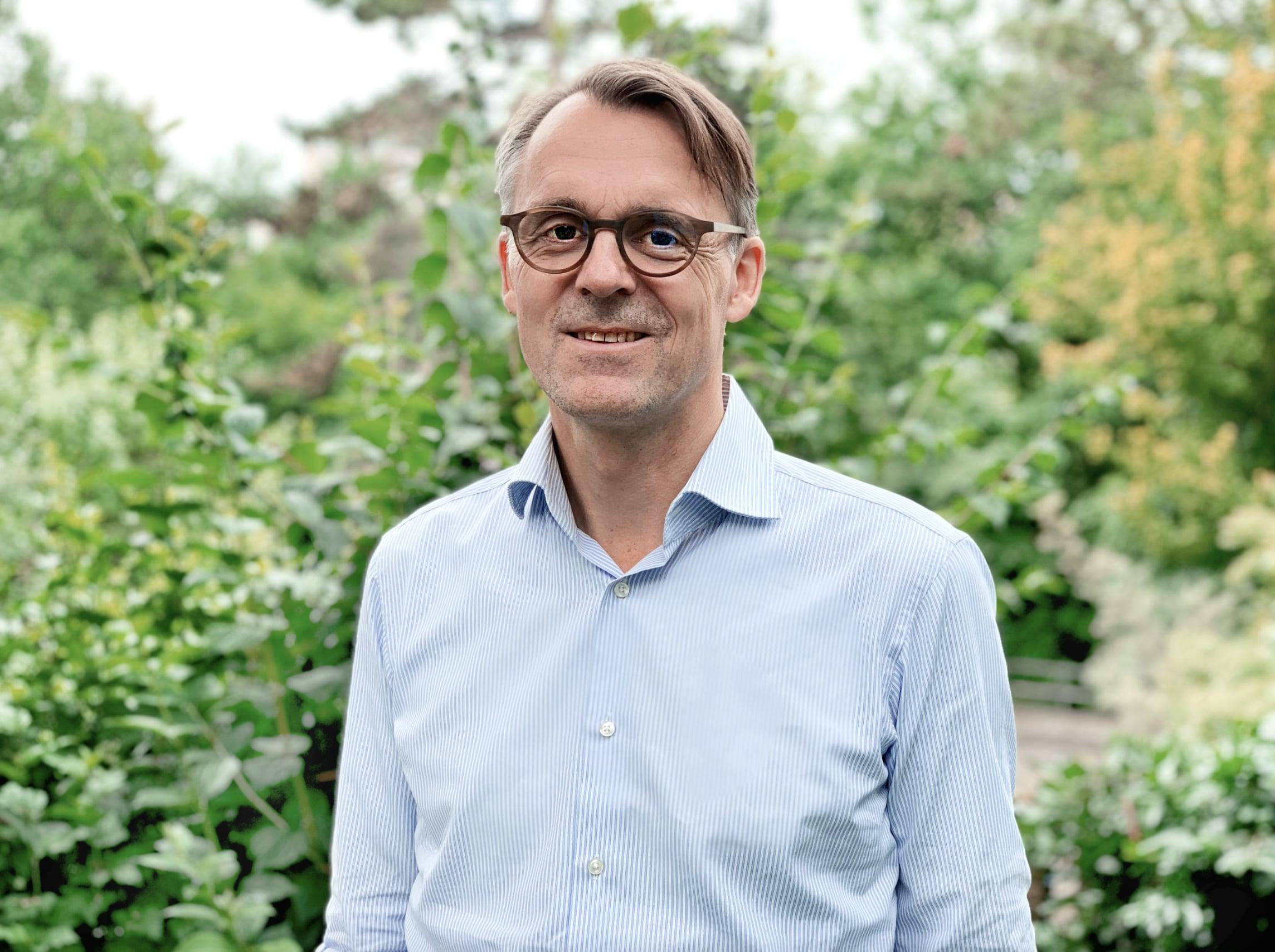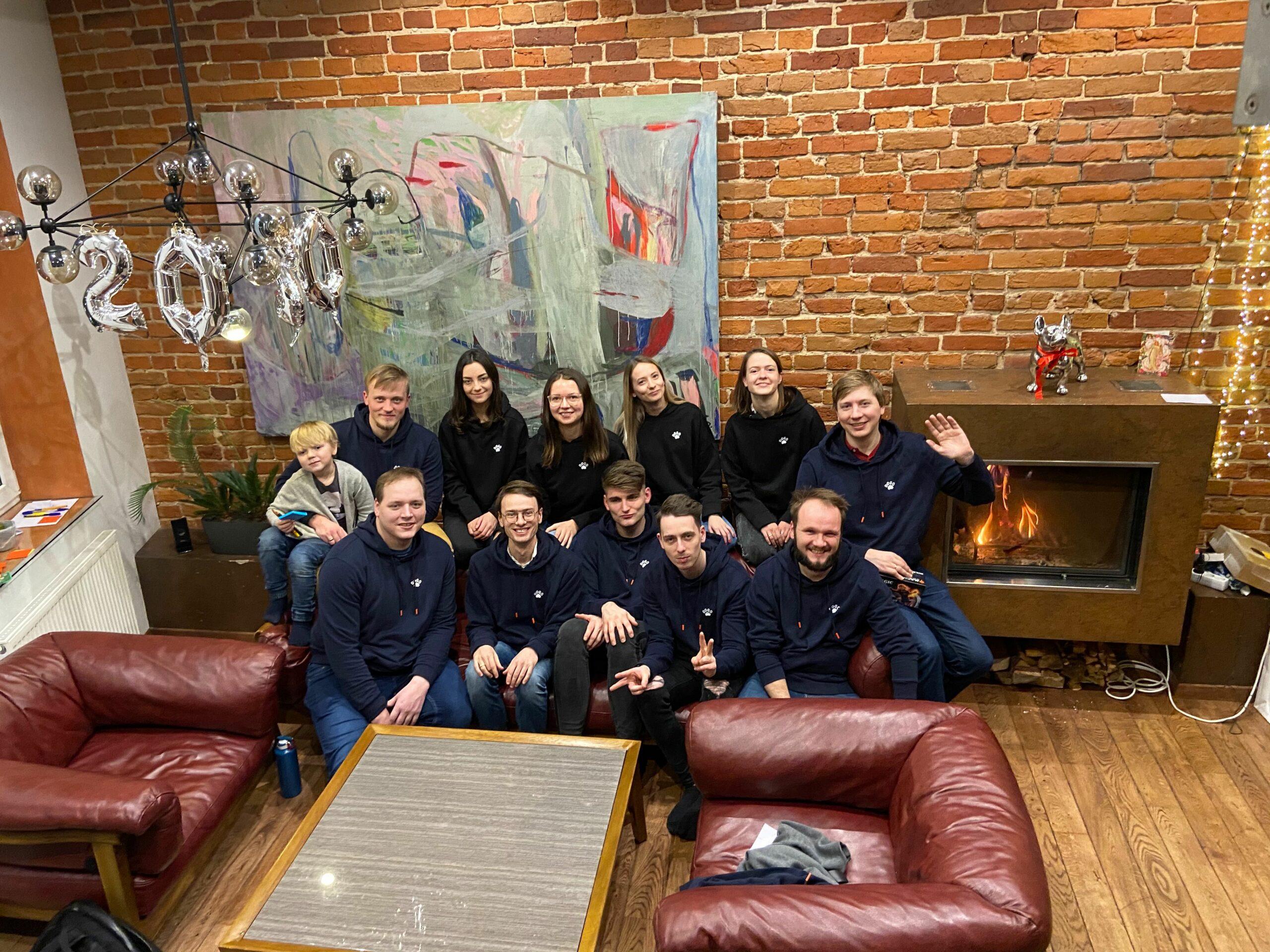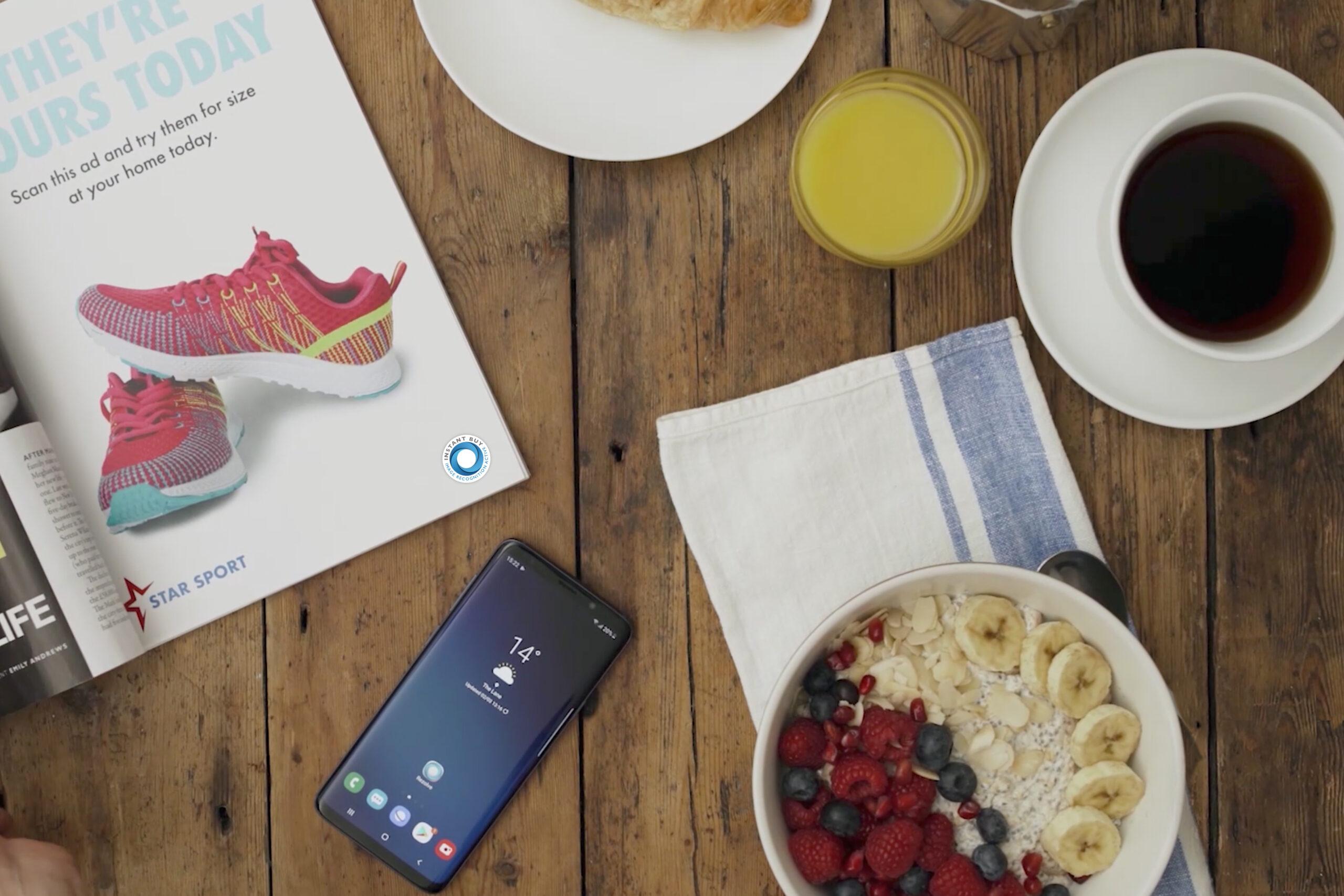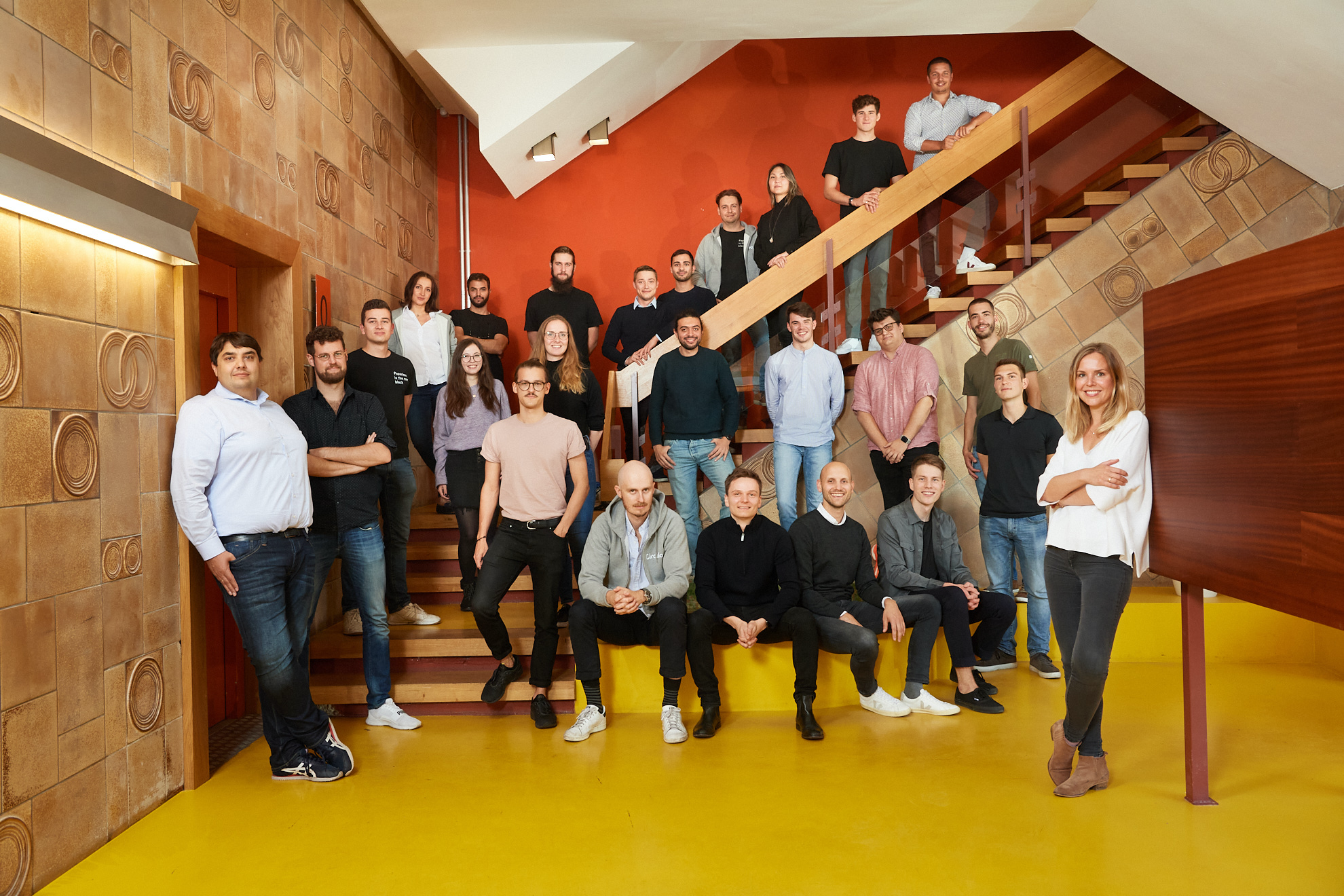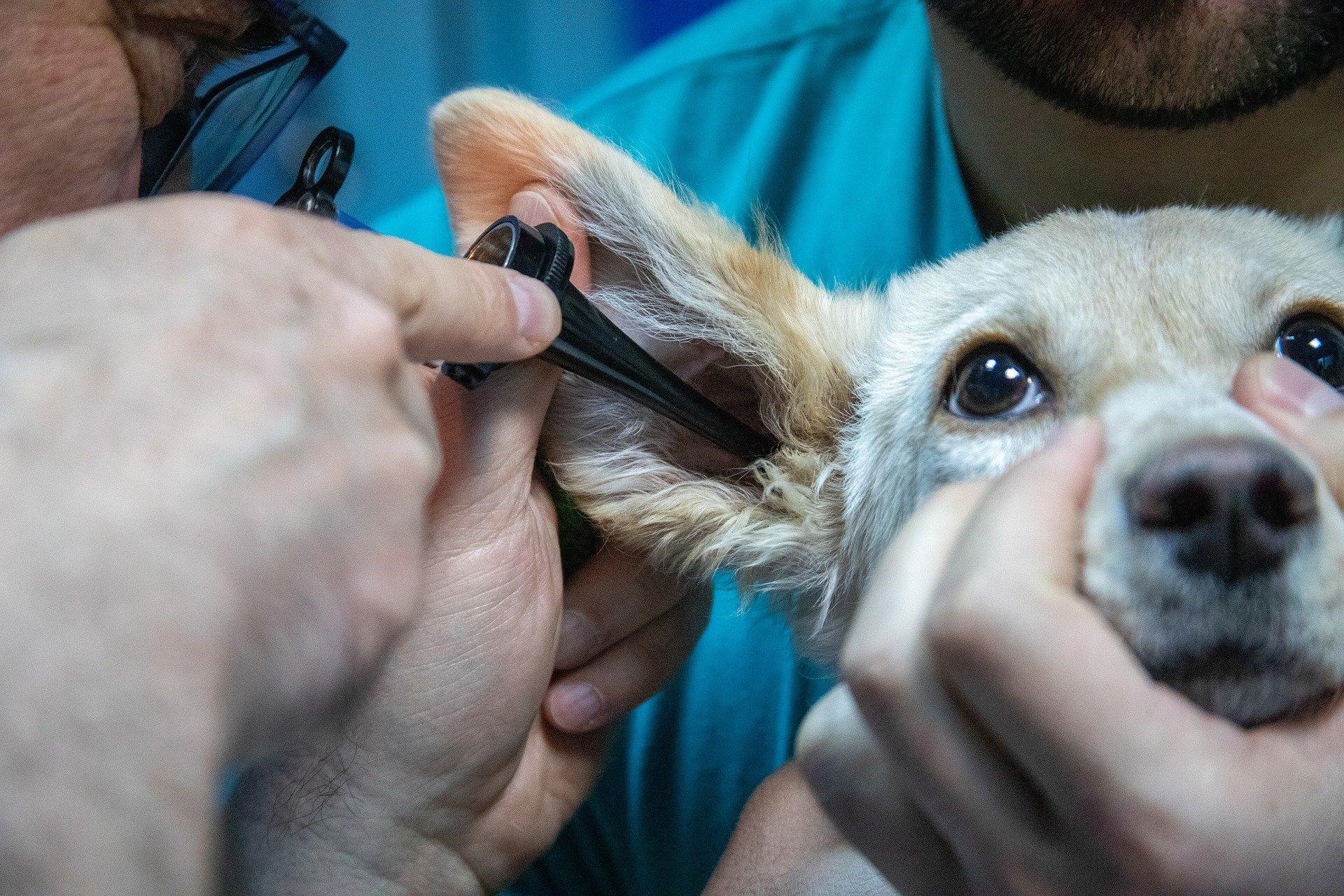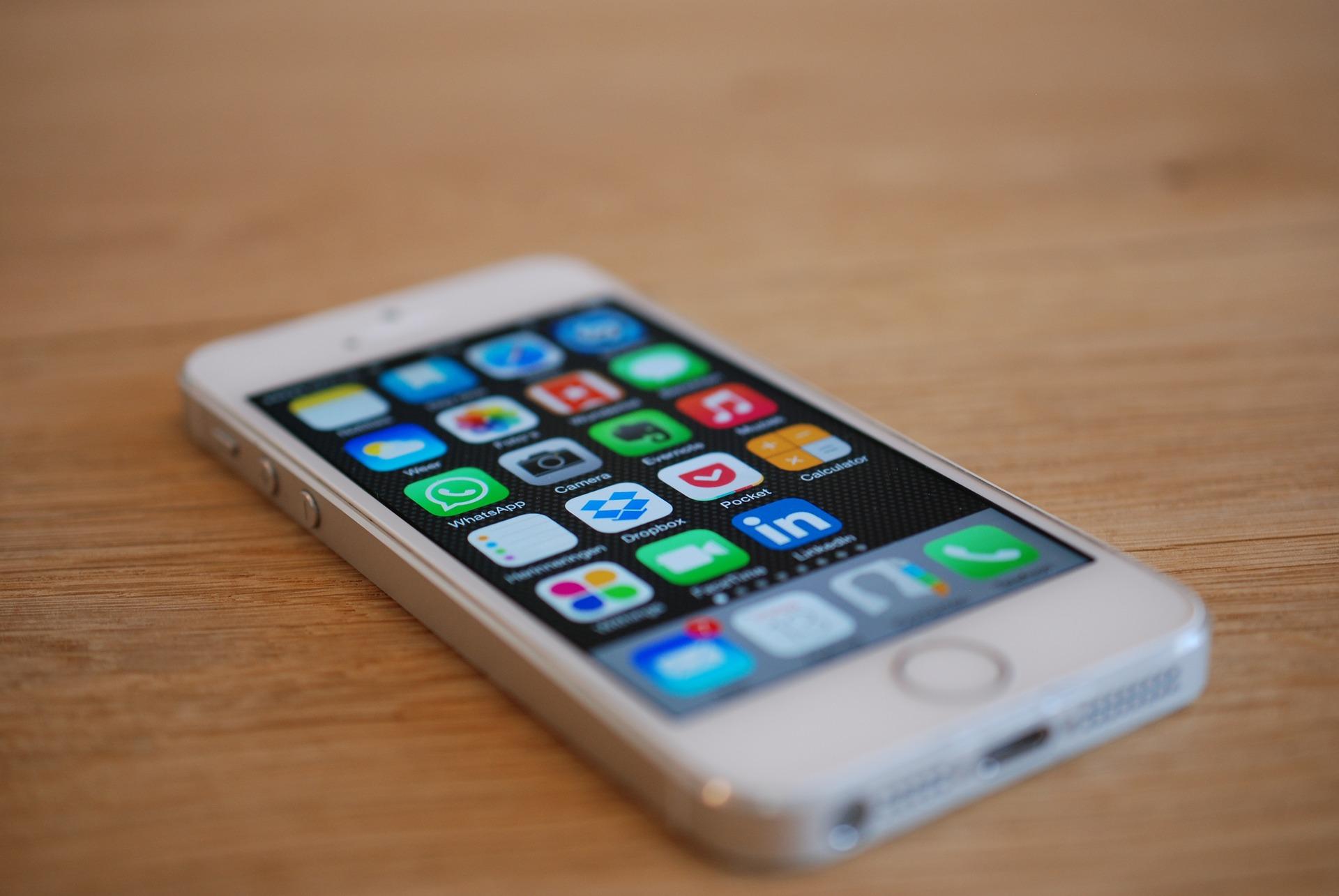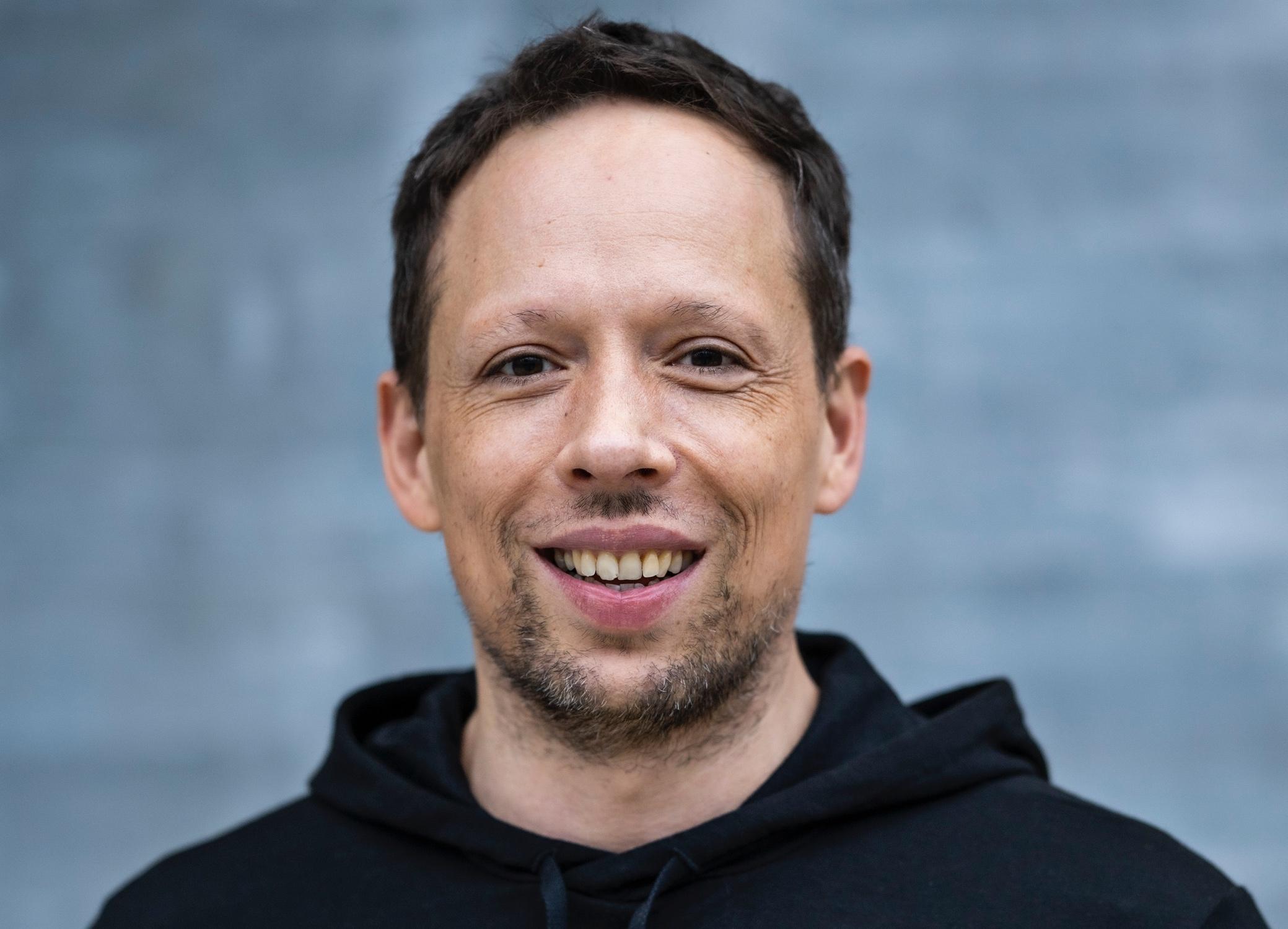These three founders, fresh out of university, want to revolutionize retail.
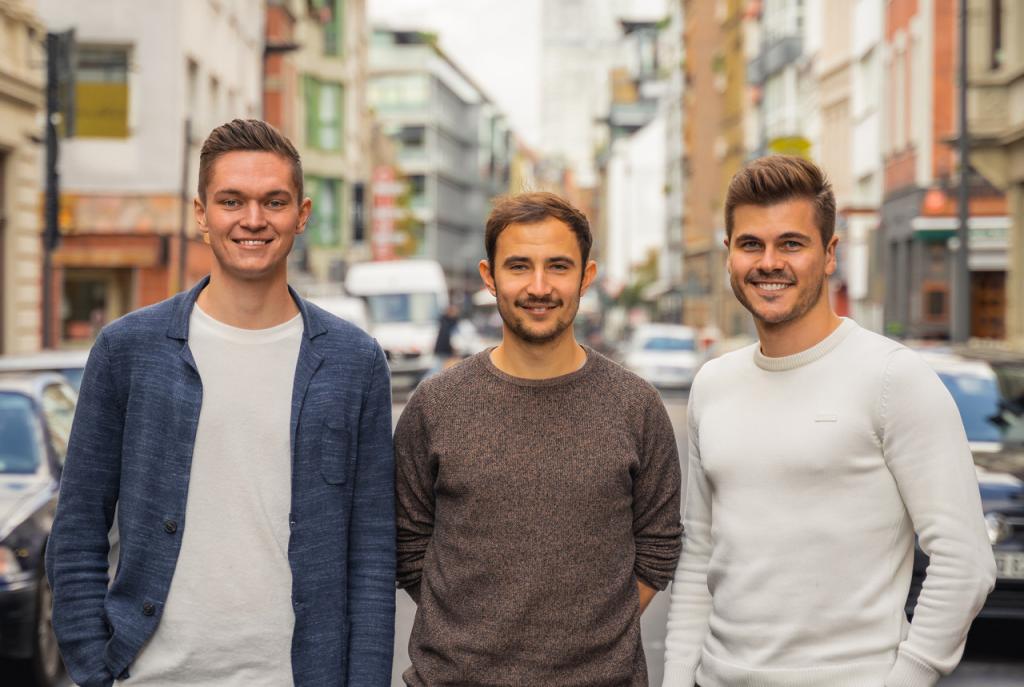
Cologne-based Hendrik Lallensack, Mirco Meyer and Michael Müller have developed baoo, a go-to-store app that displays the availability of products in nearby stores in real time. A product search engine that wants to be so much more. Find out exactly how it works, what hurdles they had to overcome at the beginning and whether the founders themselves are offline or online shoppers in this interview with Hendrik Lallensack.
How did you come up with the idea of founding your start-up?
The idea for baoo actually came to us at university. All three of us studied Retail Management at the RFH in Cologne, specializing in Omni Channel. And one day in a lecture, a professor uttered the following sentence: 'He believes that the internet will be much more local & regional in the future. My co-founder Mirco made a note of this sentence and it stuck with him. And as luck would have it, the three of us were sitting together in the evening and thinking about this sentence. It was clear to us: if the Internet has to be more local in the future, then bricks-and-mortar retail will play a very important role. And there has to be a platform that makes bricks-and-mortar shopping more targeted, more effective and easier. And, above all, much more digital than we know today. That's how the idea for baoo came about and we started to write down the idea and develop a concept. So your team consists of your Uniclique, so to speak? You could say that. All three of us studied together, but we already knew each other before our retail management studies, because we all did a dual business administration degree beforehand and come from the retail sector, so the connection was always there.
What is it like to set up a company straight after university, what were your biggest challenges at the beginning? The biggest challenge was generally getting to grips with being an entrepreneur and structuring yourself and assigning tasks. We first had to grow into this role. But we managed that relatively quickly. Another big challenge was to build up the right network and make ourselves heard. How did you do that?
First of all, we were part of the Cologne Accelerator start-up program. We were given a basic grounding in the topics of start-ups, financing and MVP testing. But what helped us the most to build a network was winning the EHI Foundation Science Award. We won the prize in the category "Best start-up for innovation in the retail and consumer goods industry". At the time, we were nominated by our lecturer and the jury also included well-known faces such as Tina Müller from Douglas and Christoph Werner from dm, who voted us into the final. This enabled us to build up our first network. That helped us a lot.
And how exactly does your business idea work?
With baoo, we have built a product search engine with a real-time availability check, so to speak. This means that you search for products, categories or brands that you would like and need in the free text search. Baoo then shows you directly where and whether the products are available in your area. In other words, just like in traditional online shopping, you scroll through the products and choose the one you like. And you can then find the nearest store that has the product in stock. So in the end, the route to the retailer is predetermined, but you also have the option of choosing another store where the product might be cheaper.
How do you know what is available and where?
To ensure the real-time availability check, we work very closely with our retail partners and network the system intelligently. We receive the data from our retail partners' merchandise management systems and can therefore guarantee real-time availability, as we know the current stock levels at all times thanks to the link. However, a digital merchandise management system in the retail business is of course a basic prerequisite for being connected to baoo.
And how many partners are you currently working with?
At the beginning of the year, we launched our major flagship project with dm, which we then rolled out across Germany. We then had a very high demand for Corona rapid tests there when they first went on sale. We were therefore able to offer a good use case with our app.
In general, however, we are currently still in the soft launch phase, initially only in Cologne. However, we are currently in the process of connecting further partners in the background. These include large retail chains from the DIY, consumer electronics, cosmetics and food sectors, which are also well-known.
To what extent do you differentiate yourselves from other search engines? What makes you better than Google?
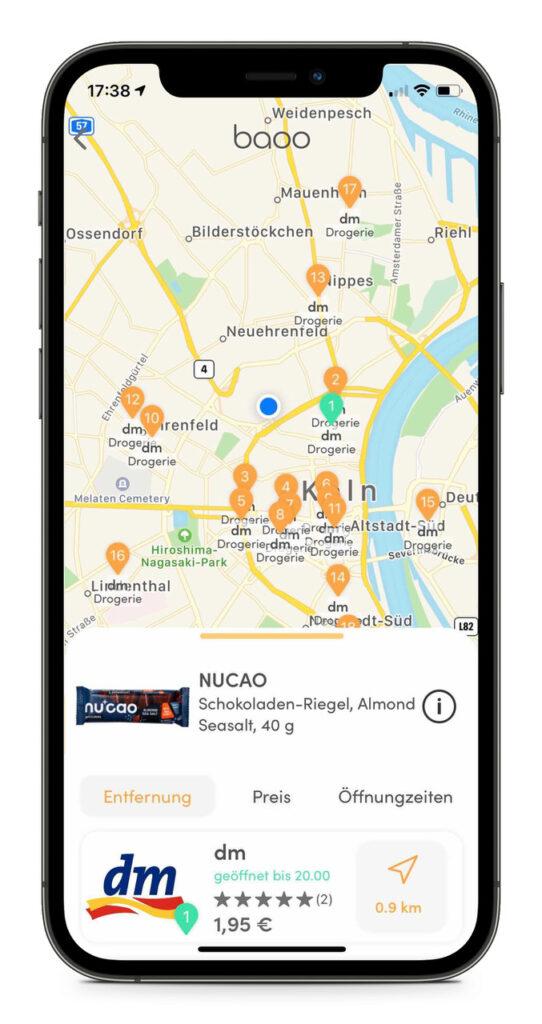
Ultimately, baoo is much more than just a search engine. Baoo is intended to be the ideal shopping channel for any situation. Of course, this starts with the product search. First of all, there is the basic need of the customer, that they need and are looking for a specific product. As consumers, we are currently still thinking in terms of regions: Which store do I have to go to in order to buy this product? At baoo, we turn the tables: for us, the search generally starts with the product.
But what is much more important than the product is that we connect services such as Click& Collect, Click& Reserve and Ship from Store in the background. This means, for example, that I can reserve a product in advance and then pick it up on my way home. Or another example: you're sitting in the park and fancy a game of basketball, then you use baoo to have a basketball delivered from a nearby sports store. In the end, there is much more to it than that: We wanted to be a platform that delivers the perfect shopping experience for every situation, no matter what you need, and does so simply and effectively. In this respect, we set ourselves apart from pure search engines. You pick up the customer at their first need and deliver what they want as quickly as possible. But what happens once the customer is in the store? Do they buy other products than the ones they were looking for? Is there perhaps a spill-over effect for the partners? Unfortunately, we have not yet been able to investigate this area as we still lack data. But what we are definitely achieving is that with baoo we are bringing customers into stores where they might not have expected to find certain products. A classic example is this: I fire up the barbecue in the evening and suddenly realize my gas bottle is empty and I need a new one. My first thought would be: where is the nearest gas station nearby where I can buy a gas cylinder? But I might also find one at the DIY store around the corner, where I wouldn't have expected to find one. And that's how we manage with baoo to get customers into the partner stores who would otherwise not have thought of the idea, which then attracts new customers to the respective store.
Your product is specifically aimed at bricks-and-mortar retailers. Critics would say that bricks-and-mortar retail is already dead. How do you see it? Does bricks-and-mortar retail still work at all, especially now after corona?
I think that retail will continue to exist and will continue to be successful. But only if customers are given the right benefits and services, especially digitally.
Digitalization has accelerated once again due to the pandemic and, above all, digital shopping behavior. Consumers are even more demanding and want more service in digital form, more access to information.
I also see great potential and opportunities for retailers if they are open to digital innovations. The key to success for retailers and, above all, to survival for retailers, is definitely openness to digital innovations and transformations. Anyone who is closed to this has probably already given up.
And what about yourselves? Are you more of an online shopper or do you like going into the city center?
Personally, I like to go to the shops, especially when it comes to buying something right now. Then I use local shops because it's simply quicker. But of course it depends on the situation. We have a very hybrid approach. If it suits us better, we buy offline, if not then online. And we don't want to take online shopping away from anyone with baoo. Our aim is much more to combine the advantages of online shopping with those of offline shopping.
And last but not least: your tip for other founders? "Get as much feedback as possible."
Thank you very much for the interview.
Personal details: Hendrik Lallensack originally trained as a retail salesman and then studied Retail Management at the Rheinische Fachhochschule in Cologne. Together with his fellow students Mirco Meyer and Michael Müller, he then founded baoo in November 2020. Since then, the three have been developing their app further and creating a product that can be used throughout Germany. In March of this year, they also won the science prize in the "Best Startup" category from the EHI Foundation

Newsletter
Startups, stories and stats from the German startup ecosystem straight to your inbox. Subscribe with 2 clicks. Noice.
LinkedIn ConnectFYI: English edition available
Hello my friend, have you been stranded on the German edition of Startbase? At least your browser tells us, that you do not speak German - so maybe you would like to switch to the English edition instead?
FYI: Deutsche Edition verfügbar
Hallo mein Freund, du befindest dich auf der Englischen Edition der Startbase und laut deinem Browser sprichst du eigentlich auch Deutsch. Magst du die Sprache wechseln?




